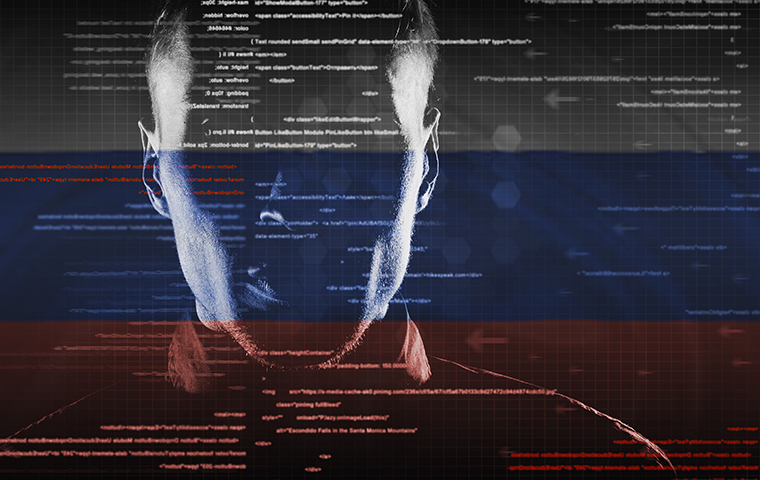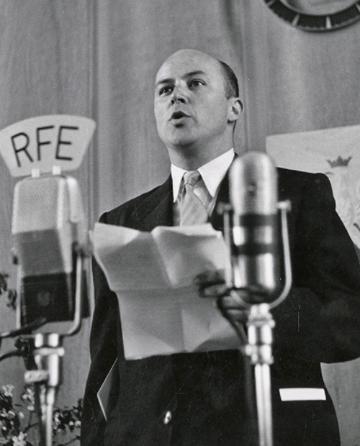
Securing Democracies in a Digital World
Ballots and Bots brings experts to Santa Clara University to discuss the impact of technology on elections.
With the U.S. midterm elections just weeks away, can another campaign of Russian hacking and disinformation be far behind? Or will a different authoritarian player surface?
And would voters even realize it was happening?
Determined to better understand how social and technological forces can influence and disrupt politics in the internet age—as Russia did in the 2016 U.S. presidential election—two Santa Clara University academics are heading up a day long conference on the critical topic.
Called "Ballots and Bots: Democracy in the Age of Data," the October 26 event will bring together some of the world’s top technology specialists and social scientists to discuss how both disciplines are manipulated to impact elections–past, present and future.
"Part of the reason we’re doing this is to make our citizens more aware so they will be more conscious of sources of information," said Jane Curry, professor of political science and a five-time Fulbright recipient who devised the program with friend and colleague Ahmed Amer, associate professor of computer engineering and an Emerging Issues Fellow at the Markkula Center for Applied Ethics.
"It’s important to understand how the Russians did this," noted Curry, who studies post-communist states as well as democratization, media, and political activism. "I’m struck by how little research there has been."
What makes the answers hard to come by, she said, is that we cannot know precisely who read the 'fake news' Russia introduced on social media leading up to the 2016 election.
But a former U.S. diplomat and current fellow at the Center for Transatlantic Relations at Johns Hopkins will be on hand to explain more fully what Russia did and can do on the internet to affect elections. A separate panel discussion with experts on cybersecurity and society also is scheduled.
Tools for Change
Yet in the right hands, social media and digital technologies have also been powerful forces for political change, Curry noted. An Egyptian information technology expert and former leader of the Free Egyptian Party will talk about the impact of both during the Arab Spring, and the uprising in Cairo’s Tahrir Square that led to the resignation of Egyptian President Hosni Mubarek.
The conference will also feature a former director of Radio Free Europe and its retired director of audience and opinion research; both will address the important role radio played during America’s Cold War with the former Soviet Union and Eastern Europe.

Jan Nowak Jeziorański on Radio Free Europe in 1948
For those living behind the Iron Curtain, Curry said, the impact of those broadcasts from the West helped to alert audiences about the propaganda their regimes were espousing; many political scientists say the broadcasts ultimately helped bring a peaceful end to the Cold War in 1991.
Three states–Estonia, Latvia and Lithuania–were the first to declare their independence after the Soviet Union dissolved that year. But in 2007, hackers unleashed a wave of cyberattacks on Estonia after the tiny nation decided to move a Soviet War memorial to the outskirts of the city.
The attacks, traced to Russia, were mostly aimed at the Estonian government agencies, banks and media outlets.
Toomas Hendrik Ilves, who was president of Estonia at the time, and then helped the country strengthen its network security, will talk about the experience and lessons learned.
No Simple Fix
Yet event co-leader Ahmed Amer points out that people shouldn’t assume the problem of election interference is just a technological fix away.
Instead, Amer said, the issue is more a technological-social problem.
"It’s about raising educational levels in society," he said. "You can put all your effort into detecting what is 'fake news' and what is not, or you can have people be more critical about what they read."
To that end, Bay Area News Group executive editor Neil Chase is expected to address the media company’s recent partnership with The Trust Project, the Markkula Center for Applied Ethics’ program that develops transparency standards to help readers assess the quality and credibility of journalism.
Amer doesn’t discount the need for technical solutions. But, he warned: "If you make the computer less hackable, and say that will fix the problem, it just highlights the apathy of the public and society. Then why should you change your responsibility in the matter?"
For more information about the event, go to https://bit.ly/2yIqwW8